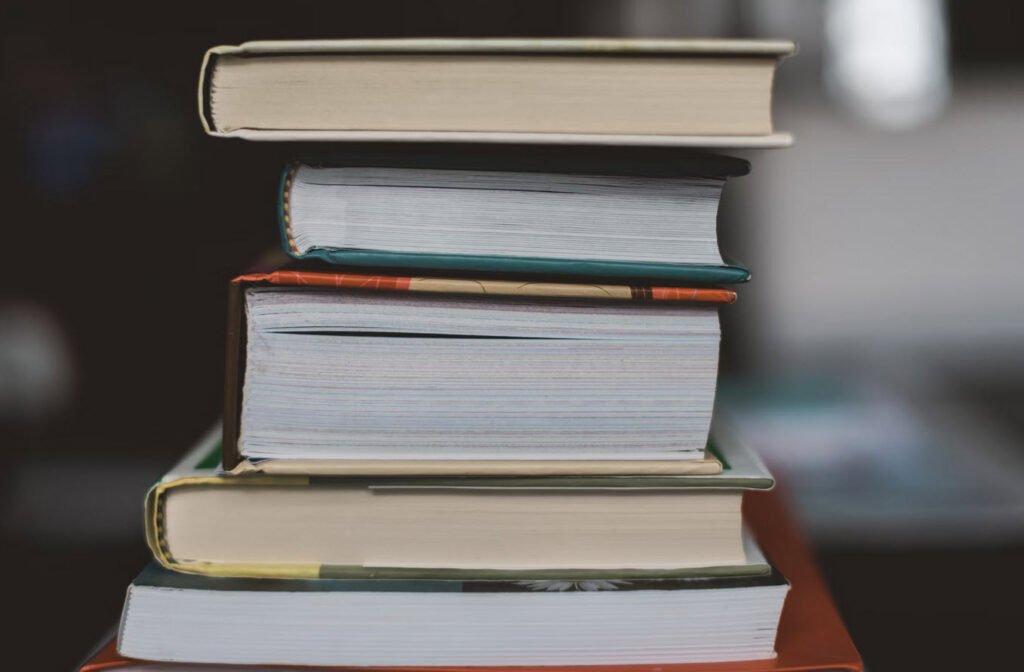The world of literature is vast and versatile, with numerous classics that have stood the test of time. For book lovers, choosing the best novels can be an overwhelming task. However, some novels have molded and shaped the literary world and have become cultural touchstones that continue to impress generation after generation.
In this article, we shall discuss some of the greatest novels of all time, which have captivated readers, made them think, and influenced the world.
- Fahrenheit 451 by Ray Bradbury
- The Great Gatsby by F. Scott Fitzgerald
- The Adventures of Huckleberry Finn by Mark Twain
- Don Quixote by Miguel de Cervantes
- To Kill a Mockingbird by Harper Lee
- The Grapes of Wrath by John Steinbeck
- The Trial by Franz Kafka
- 1984 by George Orwell
- The Lord of the Rings by J.R.R. Tolkien
- Harry Potter and the Philosopher’s Stone by J.K. Rowling
- Jane Eyre by Charlotte Bronte
- Slaughterhouse-Five by Kurt Vonnegut
- Great Expectations by Charles Dickens
- Lord of the Flies by William Golding
- One Hundred Years of Solitude by Gabriel Garcia Marquez
- Men Without Women by Ernest Hemingway
- Pride and Prejudice by Jane Austen
- The Plague by Albert Camus
- Alice’s Adventure in Wonderland by Lewis Carroll
- Anna Karenina by Leo Tolstoy
- The Picture of Dorian Gray by Oscar Wilde
1. Fahrenheit 451 by Ray Bradbury
Fahrenheit 451 is a literary masterpiece that explores the issues of censorship, conformity, and the power of books to transform individuals and society. It is a dystopian novel set in the future, where books are banned, and the job of the fire department is to burn them.
2. The Great Gatsby by F. Scott Fitzgerald
The Great Gatsby is a novel that captures the essence of the jazz age in America. The novel explores the decadence and excess of the wealthy in the 1920s and the disillusionment of the American Dream.
3. The Adventures of Huckleberry Finn by Mark Twain
The Adventures of Huckleberry Finn is a book that explores the themes of race, identity, and freedom. The novel is full of humor, satire, and adventure.
4. Don Quixote by Miguel de Cervantes
Don Quixote is considered one of the greatest novels ever written. It is a book about an aging gentleman named Alonso Quixano who becomes obsessed with the chivalric romances.
5. To Kill a Mockingbird by Harper Lee
To Kill a Mockingbird is a novel set in the Southern United States during the Great Depression. It explores themes of racism, inequality, and justice. The novel tells the story of Scout Finch, a young girl growing up in a racially divided town.
6. The Grapes of Wrath by John Steinbeck
The Grapes of Wrath is a novel that explores the lives of migrant workers during the Great Depression. The novel is a commentary on the socio-economic conditions of the time and the struggle for survival.
7. The Trial by Franz Kafka
The Trial is a surrealistic novel about a man named Josef K. who is arrested and prosecuted by an unknown authority for an unspecified crime.
8. 1984 by George Orwell
1984 is a dystopian novel set in a future totalitarian society. The novel explores themes of government surveillance, manipulation, and control.
9. The Lord of the Rings by J.R.R. Tolkien
The Lord of the Rings is an epic fantasy novel that explores the themes of good versus evil, fate, and redemption. The novel is set in the fictional world of Middle-earth, and it follows the journey of hobbit Frodo Baggins to destroy the One Ring.
10. Harry Potter and the Philosopher’s Stone by J.K. Rowling
The Harry Potter series is a modern classic that has captured the hearts of millions of readers of all ages. The story follows young orphan Harry Potter as he discovers he is a wizard and embarks on a journey of self-discovery, friendship, and magic in the wizarding world.
11. Jane Eyre by Charlotte Bronte
Jane Eyre is a novel that explores the themes of love, social class, and gender roles. The novel tells the story of Jane, an orphan who struggles against the constraints of society to find her place in the world.
12. Slaughterhouse-Five by Kurt Vonnegut
Slaughterhouse-Five is an anti-war novel that explores the effects of war on individuals and society. The novel is a mix of science fiction and autobiography, and it tells the story of Billy Pilgrim, a soldier who becomes “unstuck in time” and experiences time travel.
13. Great Expectations by Charles Dickens
Great Expectations is a novel that explores the themes of social class, identity, and self-discovery. The novel tells the story of Pip, an orphan who rises from poverty to become a gentleman through a mysterious benefactor.
14. Lord of the Flies by William Golding
Lord of the Flies is a novel that explores the darkness of human nature through the story of a group of boys stranded on an uninhabited island who struggle for survival and authority.
15. One Hundred Years of Solitude by Gabriel Garcia Marquez
One Hundred Years of Solitude is a book that explores the themes of time, memory, and the cyclical nature of history. The novel tells the story of the Buendia family over several generations in the mythical town of Macondo.
16. Men Without Women by Ernest Hemingway
Men Without Women is a collection of short stories that explore the themes of love, loss, and loneliness. The stories explore the lives of men who are struggling to find their place in the world.
17. Pride and Prejudice by Jane Austen
Pride and Prejudice is a novel that explores the themes of love, marriage, and social class. The novel tells the story of Elizabeth Bennet, a young woman who defies the expectations of society and falls in love with Mr. Darcy, a wealthy landowner.
18. The Plague by Albert Camus
The Plague is a novel that explores the themes of human suffering and the human condition. The novel tells the story of a plague epidemic that spreads through the Algerian city of Oran and its effects on the people.
19. Alice’s Adventure in Wonderland by Lewis Carroll
Alice’s Adventure in Wonderland is a classic children’s book that has captured the imagination of readers of all ages. The novel tells the story of a young girl named Alice who falls down a rabbit hole and discovers a magical world filled with strange creatures and adventures.
20. Anna Karenina by Leo Tolstoy
Anna Karenina is a novel that explores the themes of love, marriage, and morality. The novel tells the story of Anna Karenina, a married woman who falls in love with Count Vronsky, and the consequences of her actions.
21. The Picture of Dorian Gray by Oscar Wilde
The Picture of Dorian Gray is a novel that explores the themes of beauty, youth, and morality. The novel tells the story of Dorian Gray, a young man who sells his soul for eternal youth and beauty, and the corrupting influence of his portrait.



